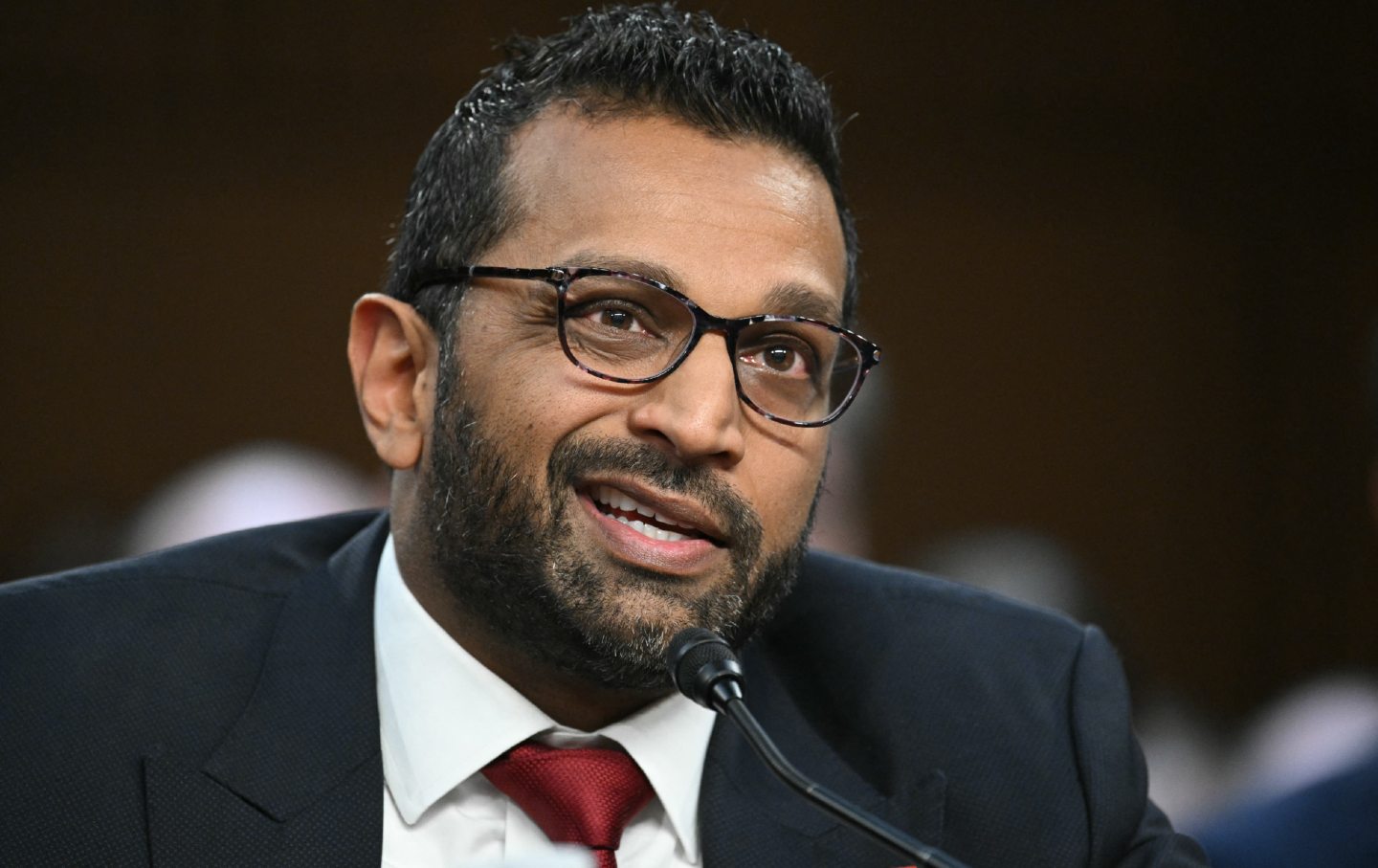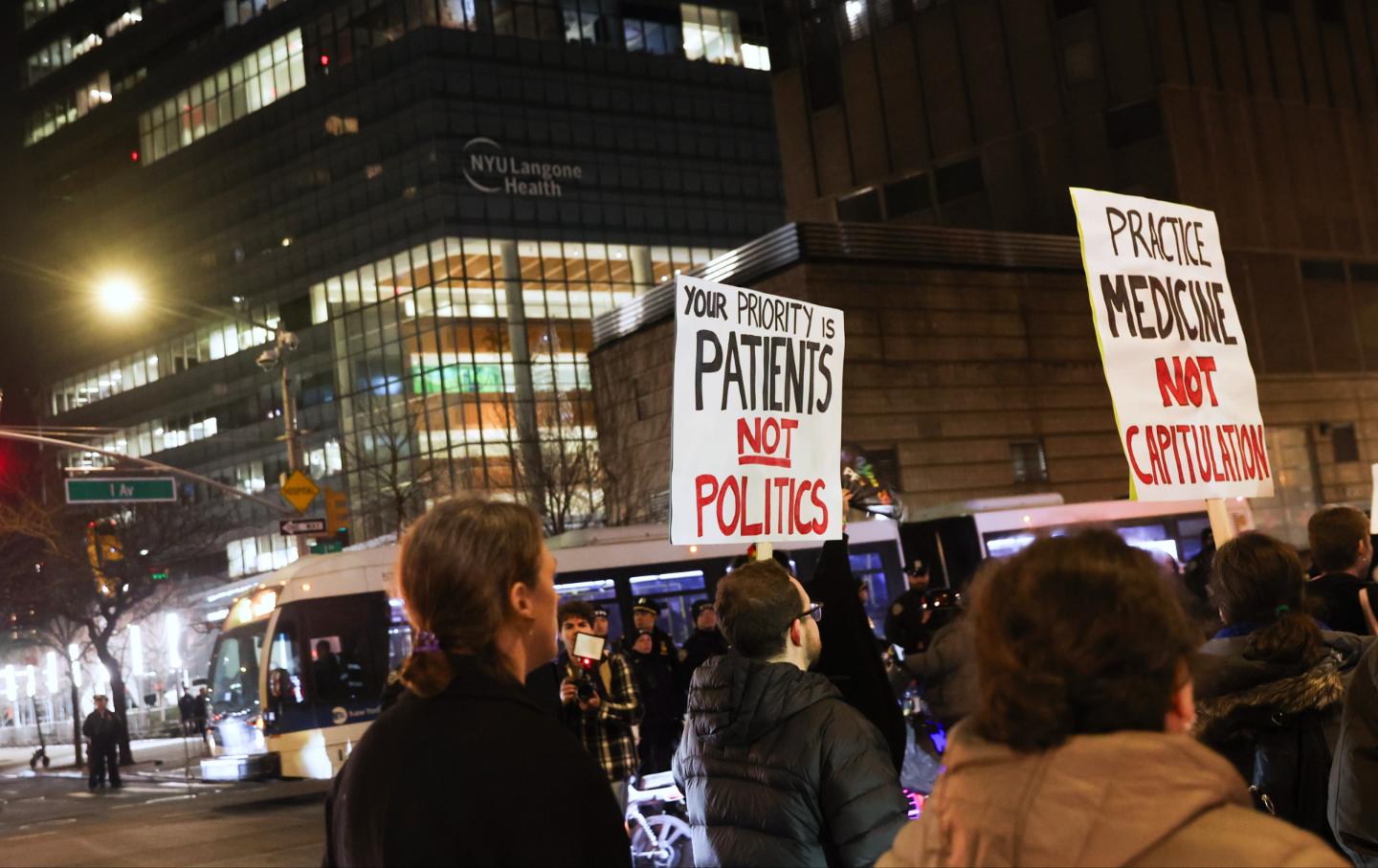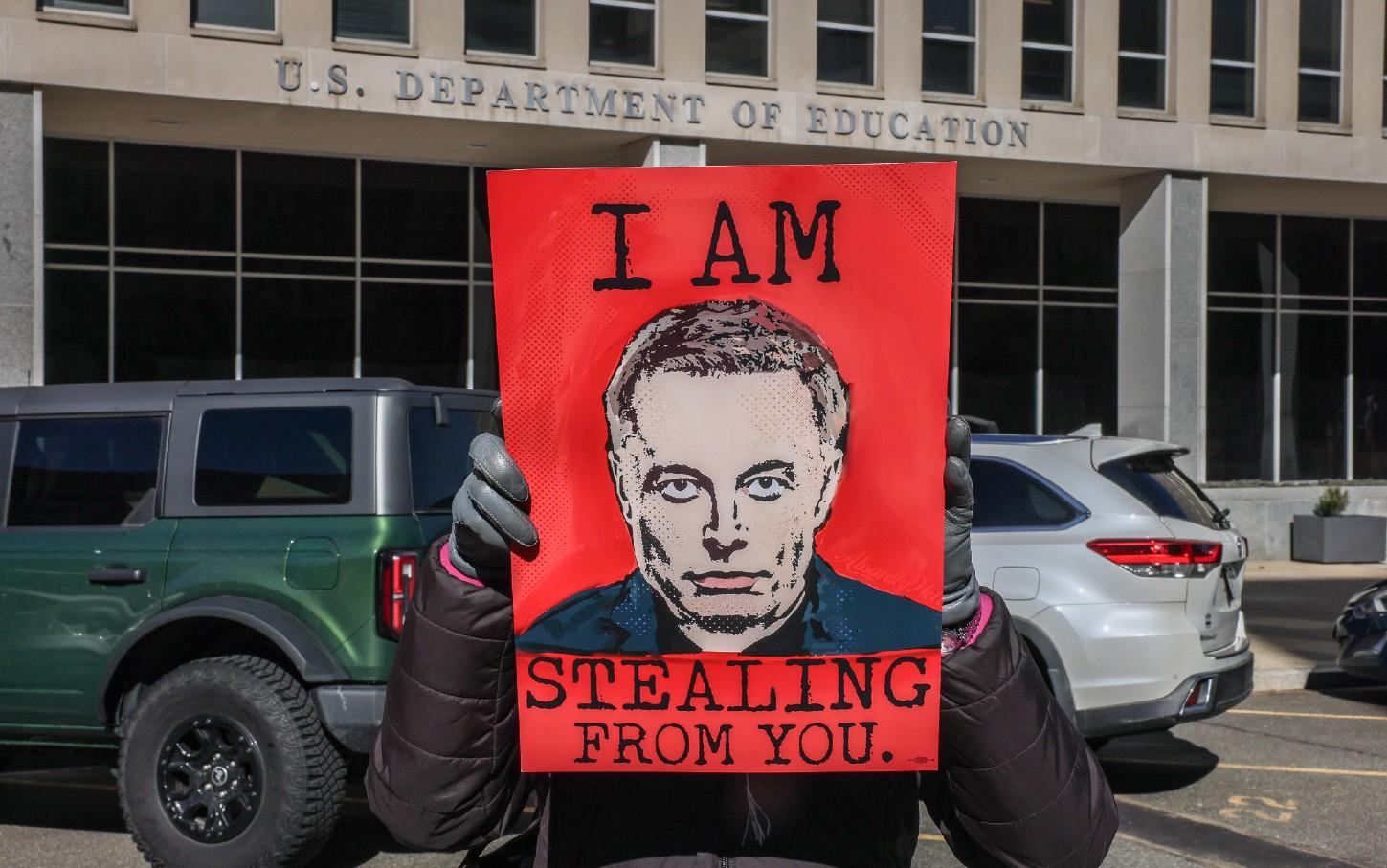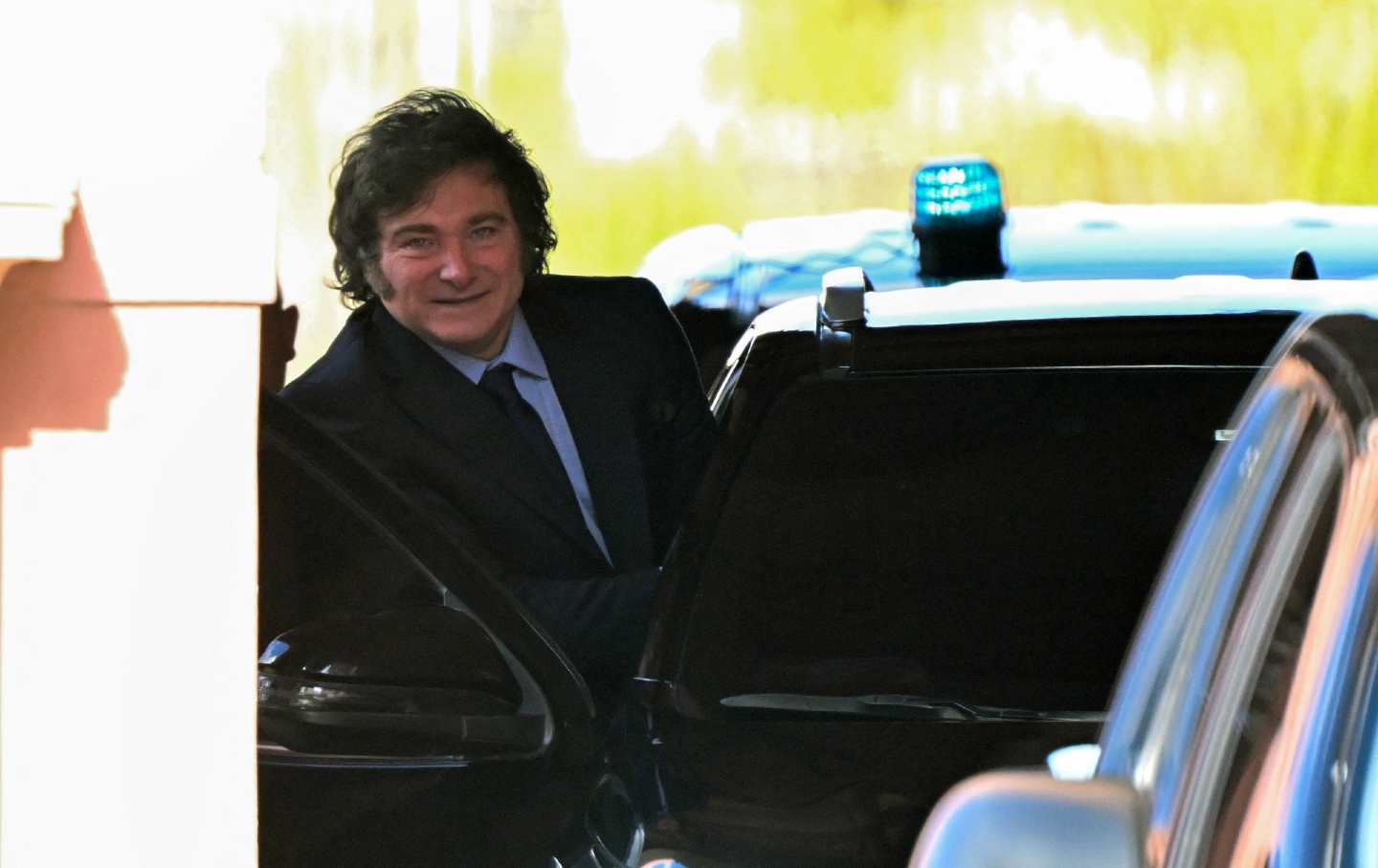Society
/
February 21, 2025
Fifty years ago, lawmakers started lifting the lid on the shocking abuses of the new Bureau chief’s most famous predecessor. The trouble is, very little changed.

When Kash Patel is confirmed this week as FBI director, he’ll go to work in a building that bears the name of J. Edgar Hoover, who headed the agency and its forerunner under eight presidents. To anyone who has grown up on Mars—as Elon Musk hopes people will in years to come—this might seem extraordinary. After all, a Senate investigation of US intelligence agencies—established on January 27, 1975—found that Hoover had orchestrated lawbreaking on an industrial scale for decades, causing people to lose their jobs, their liberty, and, in some cases, their lives.
On the face of it, President Trump has given Patel a brief to prevent the FBI from being “weaponized to persecute political opponents.” But don’t expect “political opponents” to mean progressive movements. Trump has already made clear his intent to clamp down on Palestine solidarity action with an executive order giving every department and agency of the federal government 60 days to “identify all civil and criminal authorities or actions…that might be used to curb or combat anti-Semitism.”
Hoover would have relished the task, judging by what Senator Frank Church and his committee discovered when they lifted the lid on the FBI activities in 1975. Their report, published the following year, was a blockbuster running to 2,679 pages. It had been produced in the face of stiff resistance from Hoover’s successor Clarence Kelley, who had refused to cooperate for six months, causing “great difficulties” for Frederick Schwarz, the inquiry’s chief counsel. When agreement was finally reached to give the Church Committee access to FBI files, Schwarz discovered that “substantial numbers of relevant, highly pertinent and sensitive Bureau documents” had been destroyed after Hoover’s death in 1972.
What Church exposed was nonetheless truly remarkable. The final report revealed that the FBI had engaged not only in highly intrusive domestic surveillance but also in illegal break-ins, smear campaigns and covert operations, known as COINTELPRO, to disrupt groups deemed “subversive.” Among its findings were:
- FBI headquarters alone developed more than 500,000 domestic intelligence files from 1939 to 1975, over and above many more at its field offices.
- In just eight sample cities, at least 130,000 private letters were opened and photographed by the FBI between 1940 and 1966.
- The FBI conducted hundreds of break-ins, known as “black bag jobs’” to plant microphones and steal items such as membership and mailing lists.
- At least 26,000 individuals were at one point catalogued by the FBI as “to be rounded up in the event of a ‘national emergency,’” using criteria that went beyond the law.
- The FBI routinely planted information about political activists in the press, in many cases with the aim of inciting violence against them.
- The FBI had thousands of informants on its payroll whose spying did not need a warrant and who would often be given a bonus for results, such as the $300 paid to William O’Neill who provided a floor plan of the apartment where police shot dead the Black Panther activist Fred Hampton in his bed.
- The FBI had been spending twice as much on informant operations for “internal security” as it did on organized crime.
FBI mass surveillance failed, however, to discover much that was actually unlawful. From a sample of 675 cases, Schwartz’s team found that only seven prosecutions were initiated—of which just four led to convictions.
Hoover’s abuses did, however, have an enormous human impact through other channels. As subsequent academic studies have revealed, the intelligence the FBI generated was used, both officially and illicitly, in multiple other ways with devastating consequences for tens of thousands of people.
According to David Caute in The Great Fear, FBI investigations led to 2,700 civilian dismissals and 12,000 resignations from government jobs under the Federal Loyalty Program and to the denial of clearance for 5,312 people under the Industrial Personnel Security Program. Seth Rosenfeld, author of Subversives, says that the FBI’s secret “Responsibilities Program” planted derogatory information anonymously on at least 908 people, more than half of whom were fired or forced out of academic and local government jobs.
As for the House un-American Activities Committee (HUAC), a University of Chicago study found that the intelligence provided by the FBI was used as ammunition in 172 hearings at which 3,079 witnesses placed into the public record 16,700 names of “misbehavers” most of whom were then blacklisted in some way.
Witnesses who refused to cooperate with HUAC would often be convicted of contempt of Congress and jailed. Across those targeted in different ways, hundreds ultimately suffered periods of incarceration—for contempt, for proxy offences unrelated to their political views, or using the 1940 Smith Act outlawing advocating the forcible overthrow of the government, under which 145 people were indicted, of whom 108 were convicted and sentenced to a total of 418 years in prison.
These US-wide developments were mirrored at a local level. In nearly every state, there were mini-HUACs, Smith Act replicas, oaths of allegiance, and blacklists. California’s Un-American Activities Committee, for example, published 15 reports and named in them some 20,000 people and organizations during its 30-year existence. In New York City, Caute says, the sustained purge of schools and colleges throughout the 1950s ended up ousting an estimated 379 teachers from their jobs.
A central issue facing Church was whether to ban the FBI from investigating “ideas or associations” completely. In a hearing on December 11, 1975, committee member Walter Mondale argued that such investigations should happen only by exception and “under the severest and most closely defined standards,” adding: “If we fail to do that, I am convinced that this committee has failed and that in another 50 years, there will be hearings just like this in which the excesses that we have uncovered will have been repeated.”
How right he was. Nearly all of Church’s 96 recommendations have been either ditched, diluted or defied. The Smith Act has not been repealed. New guidelines requiring the FBI to have “specific and articulable facts” concerning possible violence before targeting a political group were replaced as early as 1983 by a requirement only to have a “reasonable indication” of such a threat and have been watered down even further since.
A recommendation that judicial warrants must be obtained for surveillance, which led to Congress passing the Foreign Intelligence Surveillance Act (FISA) in 1978, mutated into a secret court nodding through virtually every request, including bulk authorizations since the act was amended in 2008. Meanwhile, the Senate Select Committee on Intelligence—established in response to Church’s call for “intensified” congressional oversight—has proven hopelessly ineffective in living up to its brief.
Popular
“swipe left below to view more authors”Swipe →
While the Church Committee’s exposure of past abuses was historic, the harsh reality is that it failed to produce a fundamental change in the modus operandi of US intelligence agencies. The FBI did not even make cosmetic changes. Not only is its headquarters still named after Hoover; its website has a tribute to his third in command, Cartha De Loach, who continued to work for the agency as a consultant after the Church inquiry and was hailed when he died in 2013 by the then–FBI Director Robert Mueller as someone who upheld the agency’s “highest ideals.”
At the heart of the problem is the question of whom the intelligence agencies deem “subversive” to the interests they serve. In the decade following Church, the FBI targeted groups campaigning against US military intervention in Central America. The American Civil Liberties Union discovered in 2008 that the FBI had been targeting anti-war groups such as the Thomas Merton Center and United for Peace and Justice. In recent years, it has mounted surveillance and covert operations against racial justice activists. Now pro-Palestine protesters are top of the list.
To make matters worse, the FBI now has 38,000 staff, compared to the 4,602 at the height of the witch hunt in 1950—and access to technology beyond Hoover’s wildest dreams. While Washington politicians worry about this force being weaponized against each other, the real issue for progressives is whether it is being used for repression of dissent.
The lesson from Hoover’s era is the classic adage that we must not stand by while they come for people whose views we don’t wholly or even partially share. Hoover may have started with communists—but social democrats and liberals soon found themselves caught in his net. It was not until the latter stages of the witch hunt that opposition to it took on a mass character, as happened with protests against HUAC hearings in San Juan in 1959 and San Francisco in 1960. Those events were the beginning of the end for HUAC, though it would also take a burglary in 1971 by seven brave civil rights activists to expose the way Hoover had turned to covert action as other weapons in his war on progressives were being denied him.
Today, we should expect Trump and Patel to act fast and fiercely in cracking down on political dissent. Sadly, liberal failure to fight for the implementation of the Church report has gifted them with an FBI still rooted in the culture of Hoover.
More from The Nation

When hospitals suddenly stop treatment for trans patients, real people are harmed immediately. “I was sent links to suicide hotlines instead of a prescription,” one person told us…
Elsie Carson-Holt

Maybe because its support for students is popular with Republicans as well as Democrats. And because cutting that funding would blow a big hole in the budgets of red states.
Jack Schneider

New York’s shield law was designed to protect providers mailing medication abortion pills out of state. But a New York provider is facing legal action in Louisiana and Texas.
Rachel Rebouché

The Argentinian president faces impeachment charges for endorsing a crypto rug pull, via the same network that apparently launched Melania Trump’s memecoin.
Jacob Silverman

Curfew restrictions and the policing of public spaces prevent teens from “getting into trouble.” But to some, it feels like it’s preventing them from getting anywhere at all.
StudentNation
/
Aina Marzia

The president’s disdain for disabled people—and obsession with genetic superiority—harks back to a grim past.
Sam Gustin

Felecia Phillips Ollie DD (h.c.) is the inspiring leader and founder of The Equality Network LLC (TEN). With a background in coaching, travel, and a career in news, Felecia brings a unique perspective to promoting diversity and inclusion. Holding a Bachelor’s Degree in English/Communications, she is passionate about creating a more inclusive future. From graduating from Mississippi Valley State University to leading initiatives like the Washington State Department of Ecology’s Equal Employment Opportunity Program, Felecia is dedicated to making a positive impact. Join her journey on our blog as she shares insights and leads the charge for equity through The Equality Network.





